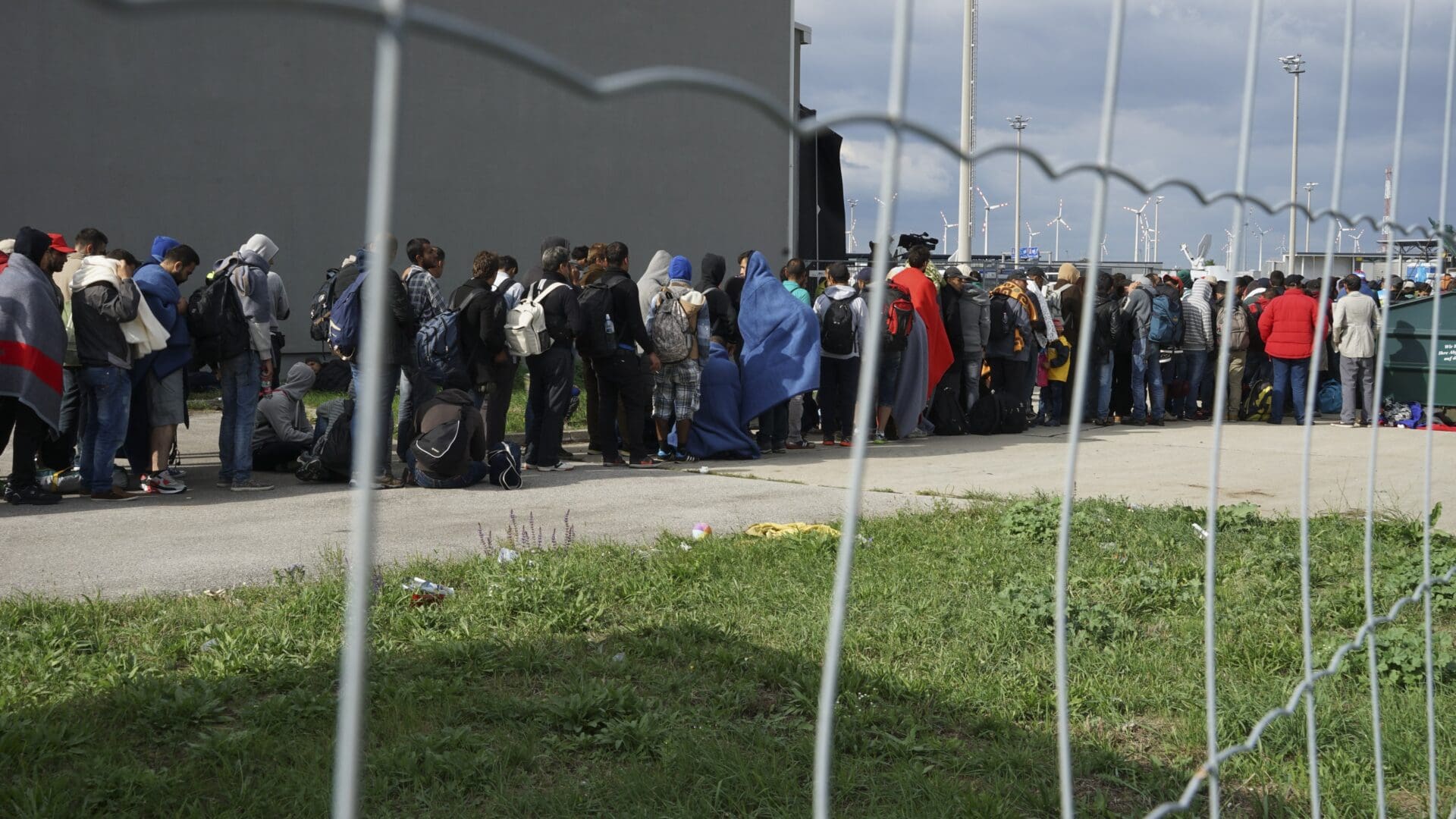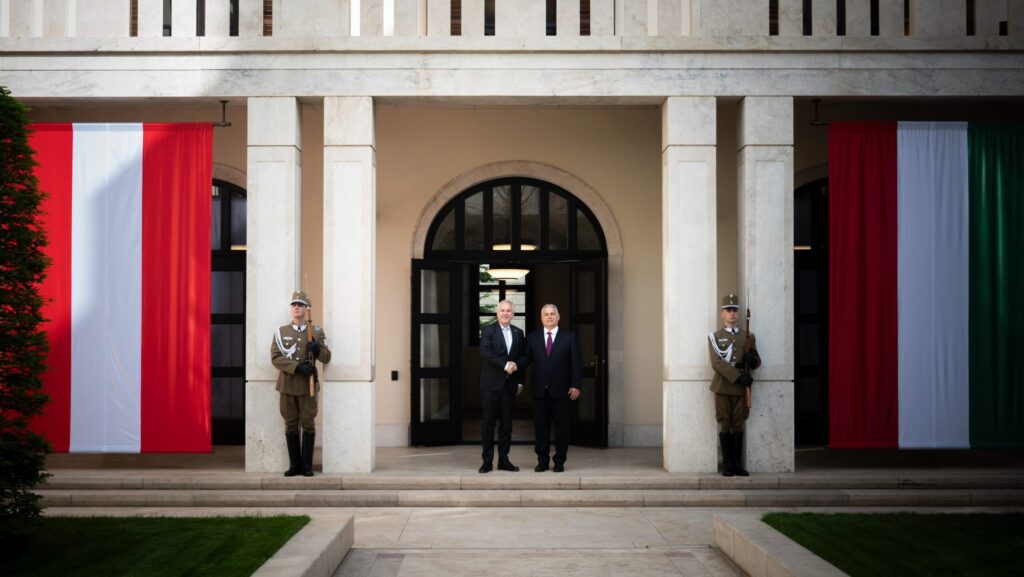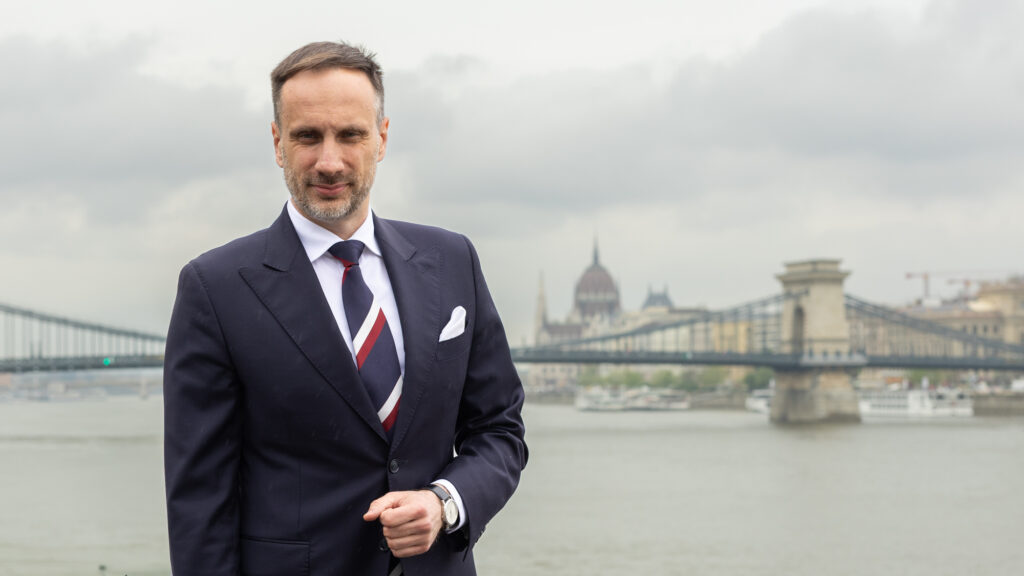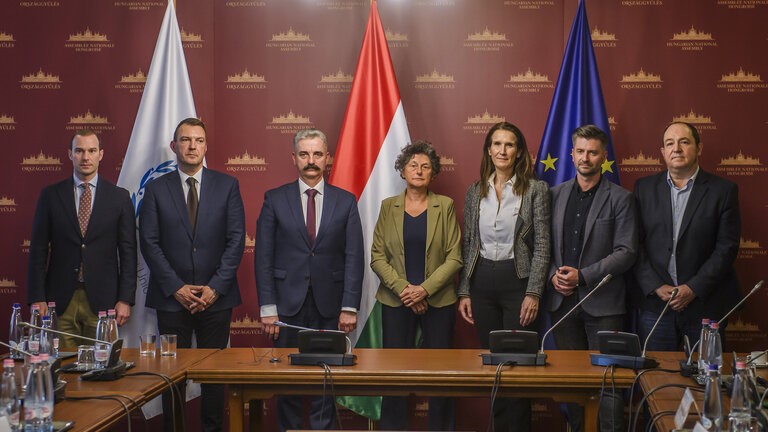In 1974, Algerian President Houari Boumendienne, in an address to the United Nations, stated:
‘One day, millions of men will leave the Southern Hemisphere to go to the Northern Hemisphere. And they will not go there as friends. Because they will go there to conquer it. And they will conquer it with their sons. The wombs of our women will give us victory.’
Recently, the Mathias Corvinus Collegium hosted a book launch of the director of the Frankfurt Research Center on Global Islam, Dr Susanne Schröter, titled ‘Global gescheitert? Der Westen zwischen Anmaßung und Selbsthass’ (Global failure? The West between Presumption and Self-Hatred).
During the presentation, Dr Schröter addressed a dilemma Europe faces, that of Islamic terrorism and
the practice of misogyny by non-conforming Muslims
who have entered our European homeland as a result of the open borders. More so, she highlighted how the left-wing body politic and most mainstream media wilfully refuse to acknowledge that there is a problem with Muslims emigrating from their homelands:
‘Politics does not pick it up, because they are afraid it is only useful to right-wing extremists and because they do not pick it up, we have of course on the right a topic that can be discussed. In all European countries we have right-wing parties that deal with migration, and therefore the rest does not want to have anything to do with it or sweeps all problems with migration, especially with the migration of Muslims, under the carpet.’
Some, even on the self-proclaimed right, sustain that Muslims have been marginalised as a result of an ingrained ‘intolerance’ in host countries because of a lack of inquiry openness, and dialogue to overcome religious, cultural, and civilisational dichotomies. While this, on the surface level, is proper, it erroneously places Western principles on par with sharia tenets, which all Muslim faithful must adhere to, especially given the violent commands in the Islamic texts Muslims hold sacred:
‘So who the sacred months have passed away, then slay the idolaters wherever you find them, and them captive and besiege them a lie in wait for them in every ambush, then if they repent and keep up prayer and pay the jizya [poll tax], leave their way free to them.’ —Sura 9, 5
According to this verse, the only way of avoiding being physically inured or killed during the time of the prophet Muhammad was either to convert or to pay the jizya. The claim of apologists that the Quran only encourages use of force for self-defence is flawed, more so since the Muslims to whom it was written were not under attack.
Yet the problem is not terrorism with fundamentalists, but the influx of Muslims who collectively refuse to adapt to their host countries, imposing their religious tenets on others. Perhaps a reason Hungarian Prime Minister Viktor Orbán, having being faced with the reality of this unprecedented inundation of Muslim migrants in Europe, has adamantly refused to accept such ‘refugees’, enduring criticism from the European community, as well as, being accused of bigotry.
Why has Orbán taken such a position? It is because he understands quite well what Islam is all about and has acted properly to keep Hungary as secure as possible.
What Islam is All About
Many today mistakenly see Islam as an abstract religion that is composed of 1.8 billion devotees. That may be the case with Buddhists or Hindus, who do not have a centralised or systematic structure to govern them, let alone an objective doctrinal point of unity. To the curious eye, Islam, which means ‘submission’, not ‘peace’, may seem a mere assent of the individual Muslim to God expressed at times in a most simple cult.
Islam, since its inception, has always been transnational as it spread across the world. The doctrine of Hijra (immigration), patterned by Muhammad’s migration to Medina in 622, compels Muslims to leave their homeland in order to campaign in the way of Allah. This has impelled many Muslims, regardless of their views of democracy, to utilise the democratic instruments of pluralism and freedom of expression to insert themselves in society with the goal of propagating Islam at the expense of others. The main strategy to achieve this—even if Islamists know it may take some centuries—is immigration, which encompasses political refuge. Islamists follow up on this by employing ethnic separatism and acquiring special status and privileges within the host country.
Islamic society, as explained in Islam: Religion of Peace?, sees the globalised West as materialistic, corrupt, decadent, and immoral—and they are not wrong given that abortion and LGTBQ+ agendas are constantly shoved down our throats. Therefore, its many seductions must be fought and eradicated.[1] This is because Muslims profess, as per their Universal Islamic Declaration of Human Rights, that ‘Islam gave to mankind an ideal code of human rights fourteen centuries ago,’ in which there is no qualm for any sort of reform or compromise. It is the duty of every Muslim to ensure that everyone ‘bear[s] witness that there is no god but Allah, and [that they] bear witness that Muhammad is the Messenger of Allah.’
Muslim fundamentalists, in their expansionist agenda, have exploited our societal disorder as leverage so as to establish a civility governed under the sharia, simultaneously inciting the average Muslim into following their lead. They are the new propagators of Islamic fundamentalism, which is often characterised by moral conservatism, literalism, and the attempt to implement Islamic values in all spheres of life. Their crusade fosters a sociopolitical movement that has associated itself with community organisations and charities, thereby assuming bureaucratic positions in government and nongovernmental organisations, such as the United Nations.[2]
It should therefore be of no surprise that in June 1993, at the UN Conference on Human Rights held in Vienna, Islamic states, including those of the Middle East and Asia, criticised ‘UN and Western policy for its double standards, its violation of sovereignty, its neglect of economic rights, its imposition of “Western” values.’[3] This denunciation, despite the fact that all Muslim states but Saudi Arabia consented to the 1948 UN Universal Declaration of Human Rights (UDHR), is sustained by those who seek an Islamic world order. Since ‘all humanity is confused because of different and conflicting beliefs and ideologies,’[4] it accordingly needs to be properly guided by Islamic jurisprudence to its proper end, which is submission to Allah’s will.
This has generated a reformed Islamic social order, a restructuring of Islamic nationalism which undermines our Western way of life.
This has been evident by the increase of halal (Muslim)-friendly hotels or sharia ‘No-Go Zones’.
While Europeans are aborting and contracepting themselves out of existence, Muslims are doing just the opposite. They rightfully abhor abortion, for they know it is nothing else than murdering an unborn infant. Also, there is the practice of polygamy, which also increases the progeny in the family. It is, therefore, no surprise that, according to a 2017 Pew Research report, ‘if current demographic trends continue, the number of Muslims is expected to exceed the number of Christians [worldwide] by the end of this century’.
[1] Samuel P. Huntington, The Clash of Civilizations and the Remaking of World Order. London, Simon & Schuster, 1996, 213.
[2] Olivier Roy, “Political Islam after the Arab Spring: Between jihad and democracy,” in Foreign Affairs 96, 6, November/December 2017, 127.
[3] Fred Halliday, “Relativism and universalism in human rights: The case of the Islamic Middle East,” Political Studies XLIII, 1990, 152 (onlinelibrary.wiley.com/doi/10.1111/j.1467-9248.1995.tb01741.x/epdf), accessed 16 March 2023; cfr. United Nations World Conference on Human Rights, “Vienna Declaration and Programme Action,” 25 June 1993, Article 1, (http://www.ohchr.org/EN/ProfessionalInterest/Pages/Vienna.aspx), accessed 15 March 2023.
[4] Organisation of the Islamic Conference, Cairo Declaration on Human Rights in Islam, August 5, 1990, U.N. GAOR, World Conference on Human Rights, 4th Session, Agenda Item 5, U.N. Doc. A/CONF.157/PC/62/Add.18, 1993, Article 24, (https://www1.umn.edu/humanrts/instree/cairodeclaration.html), accessed 15 March 2023.








